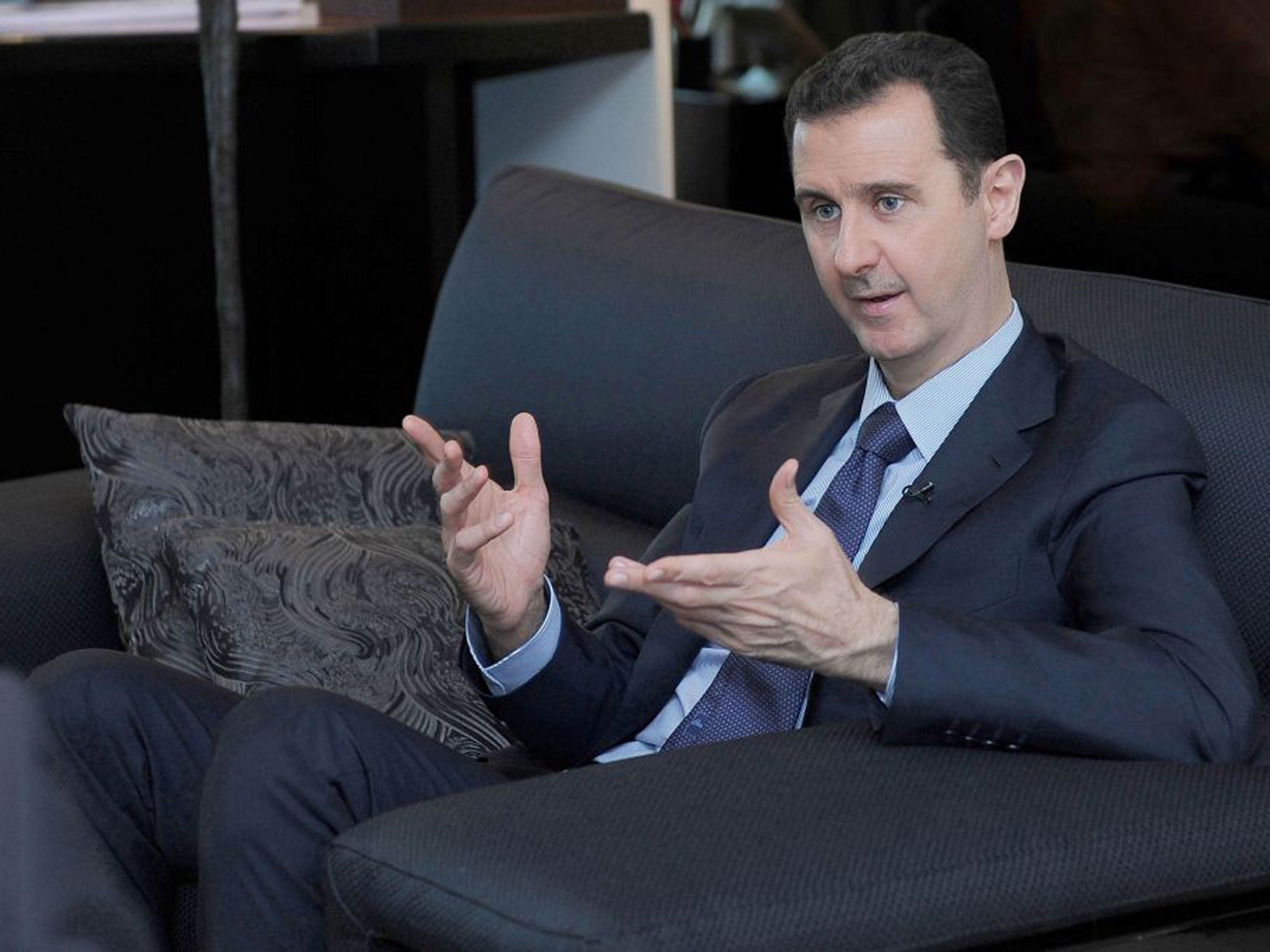Why Obama was right to call chemical weapons a ‘red line’
The West should pursue its initial course of punitive strikes

President Obama yesterday suspended a congressional vote to authorise the use of force against Bashar al-Assad’s regime, after Russia put forward a proposal aimed at monitoring and destroying Syria’s stockpile of chemical weapons.
That proposal, however, looks too ambitious and unrealistic: first, because the US and Russians disagree over enforcement mechanisms; the consequences that follow if the Syrian regime fails to comply (the US and her allies want a resolution provisioning the use of force in the event of non-compliance, the Russians do not) and the operational and technical challenges associated with destroying chemical weapons in a risky and volatile conflict zone.
Western military intervention has not, therefore, been averted and is still a probable scenario; and it can still make an important contribution to the Syrian conflict, as well as beyond.
First, desperate despots around the world must be sent a message. The use of chemical weapons will not be permitted; the international community will not tolerate their use and it will indeed act in the event this horrific form of weaponry is used.
Critics point out it is the numbers killed, rather than the means through which they are killed, that should constitute the ‘red line’ line for the international community and supporters of humanitarian intervention. That, however, misses the logic, purpose and impact of chemical weapons use.
After-effects
Chemical weapon attacks in modern times can be traced to World War I. They were most used most recently in 1988 in the Iraqi Kurdistan town of Halabja. These macabre attacks not only kill quickly and with an immediate impact on the local population but they also inflict terror and have long-term consequences. They have the capacity to dramatically reduce enemy morale and fix a permanent physical and psychological scar on the local population. Further, chemical weapons inflict long-term injuries to its victims and can affect future generations in the form of birth defects and other disabilities. In Halabja, Saddam Hussein’s forces killed at least 5,000 men, women and children almost instantly. Thousands more continue to suffer today.
In other words, chemical weapon attacks are not simply about destruction but about inflicting long-term, immeasurable and sustained pain and horror on a population. They are indiscriminate with their targets and their reach goes beyond the battlefield.
On the battlefield, they have the capacity to alter the balance of a conflict and offer a strategic advantage, especially in localised conflicts. It is questionable that the limited use of chemical weapons in Syria will change the direction of the conflict. They can, however, be effective in urbanised and local areas. Syria is engaged in a localised conflict where battles are taking place between disparate rebel forces and regime loyalists in an array of towns and cities. Yet, if chemical weapons were used in a more consistent and sustained fashion and throughout the towns and cities embroiled in the conflict, then the entire balance of power could be altered to favour the regime.
Hesitation over military action is also based on the premise that the West would be supporting and fighting alongside radical al-Qaeda elements that dominate and comprise the opposition. But that misses two important aspects: firstly, that it would be against Western interests to have a rebel victory at a point when the West has limited influence on the ground and, secondly, victory would put these radical al-Qaeda elements in a position where they dominate the Syrian state. That would be catastrophic for the security and interests of both the West and the broader international community.
Bloody nose
Instead Prime Minister Cameron, alongside President Obama, has made it clear that any military strikes will not be aimed at removing the Assad regime or afford the rebels any meaningful victory - but that strikes would be punitive in their nature and give, at most, the Assad regime a bloody nose. Hence, Western action that aims to deter further chemical weapons use will not necessarily bolster and afford rebel forces meaningful victory.
The use of punitive and symbolic military strikes does not have to mean that diplomacy should be put aside. The form of military intervention proposed by the US and UK, but from which both powers have temporarily drawn back, can realistically be combined with diplomacy. Both Cameron and Obama have stated that the only outcome to this conflict can and must be a negotiated political settlement.
At best, military strikes will induce Assad into negotiating. This, however, has to be coupled with an effort to force rebel forces to sit down at the negotiating table. Both options seem unlikely at this stage, given that the Assad regime has immense regional support as well as important support from Russia. Moreover, rebel forces themselves are divided on the issue and do not operate under one unified banner.
However, at a minimum, military strikes will show a willingness to act that goes beyond the current conflict in Syria. The West is not currently in a position to topple Assad or to devote itself entirely to the downfall of the regime through extensive use of its military capacity (for example by deploying ground troops). But it can still send a message to the Assad regime, as well as existing and future despots of the world, that it will act in the face of chemical weapons usage.
Ranj Alaaldin is a doctoral researcher at the London School of Economics and Political Science, where he focuses on Shia political mobilisation and sectarian conflict in the Middle East. He previously worked on the law of armed conflict and the use of force.

Join our commenting forum
Join thought-provoking conversations, follow other Independent readers and see their replies